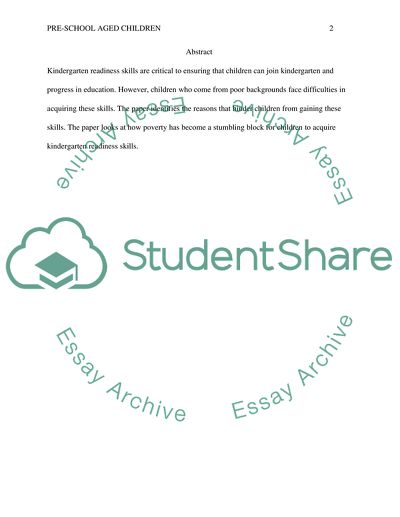Cite this document
(Why and How are Preschool Aged Children Who Are Living at or Below the Research Paper, n.d.)
Why and How are Preschool Aged Children Who Are Living at or Below the Research Paper. Retrieved from https://studentshare.org/education/1821169-why-and-how-are-preschool-aged-children-who-are-living-at-or-below-the-poverty-level-lacking-in-kindergarten-readiness-skills
Why and How are Preschool Aged Children Who Are Living at or Below the Research Paper. Retrieved from https://studentshare.org/education/1821169-why-and-how-are-preschool-aged-children-who-are-living-at-or-below-the-poverty-level-lacking-in-kindergarten-readiness-skills
(Why and How Are Preschool Aged Children Who Are Living at or Below the Research Paper)
Why and How Are Preschool Aged Children Who Are Living at or Below the Research Paper. https://studentshare.org/education/1821169-why-and-how-are-preschool-aged-children-who-are-living-at-or-below-the-poverty-level-lacking-in-kindergarten-readiness-skills.
Why and How Are Preschool Aged Children Who Are Living at or Below the Research Paper. https://studentshare.org/education/1821169-why-and-how-are-preschool-aged-children-who-are-living-at-or-below-the-poverty-level-lacking-in-kindergarten-readiness-skills.
“Why and How Are Preschool Aged Children Who Are Living at or Below the Research Paper”, n.d. https://studentshare.org/education/1821169-why-and-how-are-preschool-aged-children-who-are-living-at-or-below-the-poverty-level-lacking-in-kindergarten-readiness-skills.


